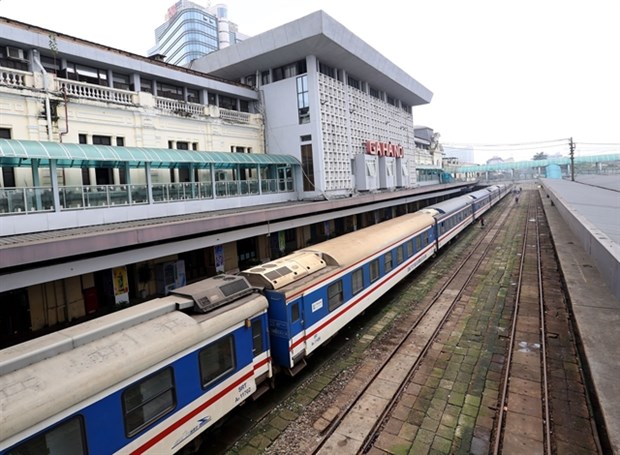Vietnam Railways to upgrade infrastructure
Thứ Hai, 25/11/2019, 17:44
Vietnam Railways (VNR) plans to upgrade rail infrastructure to satisfy passenger demand by building 300 new carriages and purchasing more locomotives by 2023 to provide better services.
 |
|
A train at Hanoi Railway Station. Vietnam Railways (VNR) plans to upgrade rail infrastructure to satisfy passenger demand. (Photo: VNA) |
Vietnam Railways (VNR) plans to upgrade rail infrastructure to satisfy passenger demand by building 300 new carriages and purchasing more locomotives by 2023 to provide better services.
Vu Anh Minh, Chairman of VNR’s Member Council, said that outdated locomotives and carriages led to higher fuel consumption and maintenance costs.In accordance with the 2017 Railway Law, the lifespan of locomotives and carriages should not stretch beyond 40 years for passenger trains and 45 years for cargo trains. This necessitated the purchase of new equipment, he said.
Of the 257 locomotives in operation, 115 locomotives had been in use for less than 20 years; 18 for 20-30 years; 89 for 30-40 years; and 45 for more than 40 years.
About 667 carriages of the 1,008 in use were less than 30 years old, while 103 had been in operation for 35-40 years and 163 for 40 years or more.
According to Minh, the VNR had been working with foreign partners on an investment solution for the plan.
“The partner will build the trains and offer them to the VNR on a lease-purchase agreement."
In the meantime, the cost of building carriages would be cut by 10 percent, Minh said.
For example, it costs about 300 billion VND (12.9 million USD) to build a carriage and 40 billion VND for lifetime maintenance. The VNR would have to spend 300 billion VND instead of 340 billion VND without taking out loans.
“We expect 50 new trains to go into operation in the next 3-5 years,” he said.
Minh also said the VNR would ask its partner to form a joint venture with Gia Lam Train Company or Di An Train Company to lower the cost of building trains, while ensuring domestic workers, machines and materials were utilised.
Along with the new carriages, the VNR would upgrade old ones to save money.
VNA

